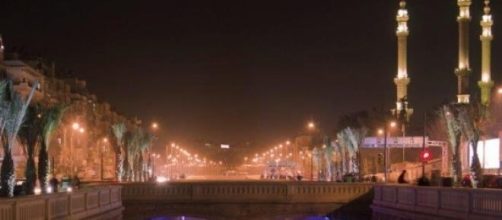A study led by Xi Li, researcher at Wuhan University, has published night time satellite pictures in Syria's different regions, taken every 6 months for the past 4 years. During this period of time, 83% of the country's lights have gone out, thus raising awareness on just how devastated the country is.
The fall of night time light is higher in rebel held cities
Decline in night light can be explained by power shortages, of course, but also by physical destruction or displaced person movements. In Aleppo, a city that has turned into a battleground between government and rebel forces, 97% of the lights are out, leaving the remaining citizens plunged into darkness.
In Rakka, a city that has been occupied by ISIS for the past two years, 96% of the lights are out, meaning that the jihadists have not been able to maintain public light under their occupation. On the other hand, pictures of government held cities such as Damas show less damage: "only" 33% of the lights are down.
Satellite pictures: a new tool for a real wake-up call
Satellite images, taken from 500 miles above the earth, are an innovative and objective tool to account for the gravity of the war and the humanitarian crisis it has triggered. Lack of power implies a lack of administrations, schools, hospitals, all central to a city's - and citizens'- health.
This study, supported by the #with Syria coalition, aims at using new types of data to shake the International Community.
Another study, "Failing Syria", will be released within the week. It accuses the UN Security Council of having failed to pass 3 resolutions to fight the Syrian war in the course of 2014.
Since the beginning of the war, over 7.6 million people have been internally displaced, and 3.8 million have fled the country, finding refuge mostly in neighbouring countries, namely Lebanon, Jordan and Turkey. 220,000 more have been killed in the course of the conflict, of which over 76,000 were in 2014, making last year the winner of the 'best' award for the bloodiest year in Syria.
Show me the light
Karim Lahidji, President of the Human Federation for Human Rights, claims that the International Community is the Syrian people's last hope in such circumstances. 4 years after the beginning of this war, it has "the duty to turn these lights back on."

